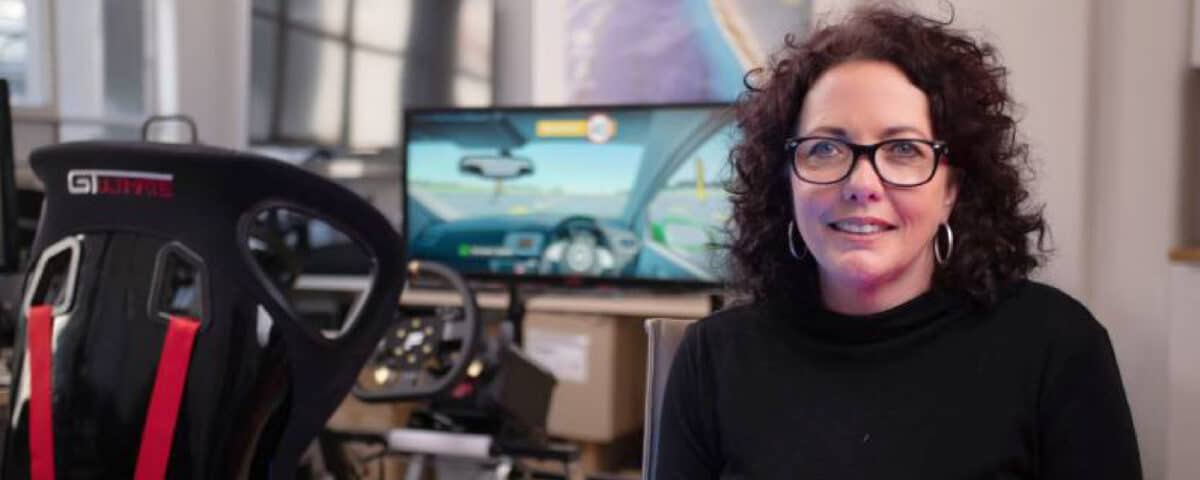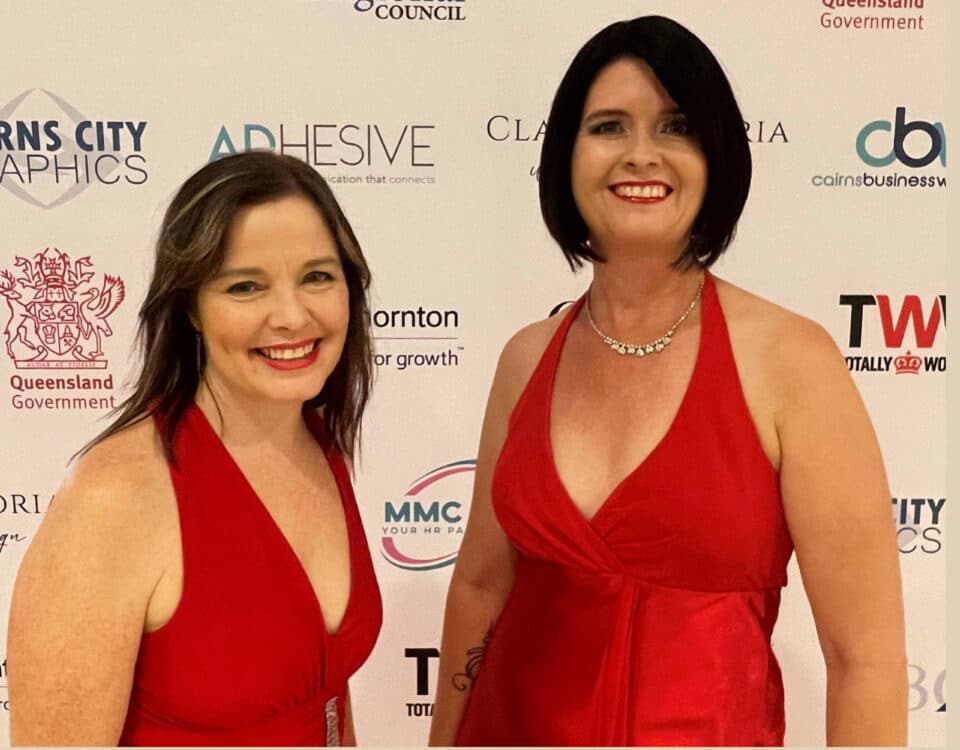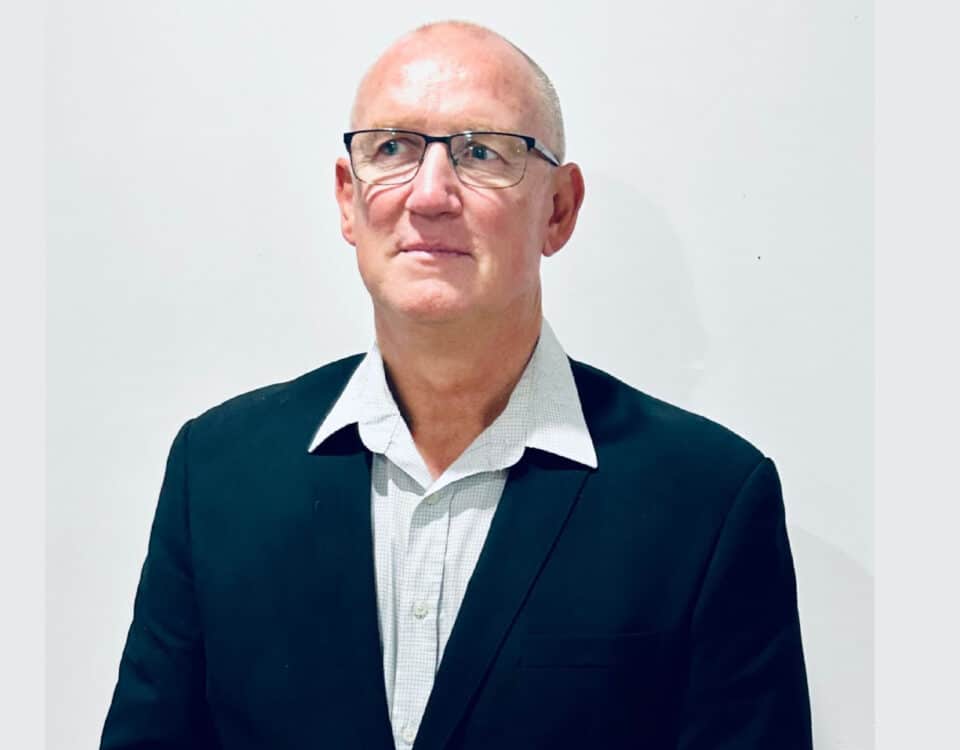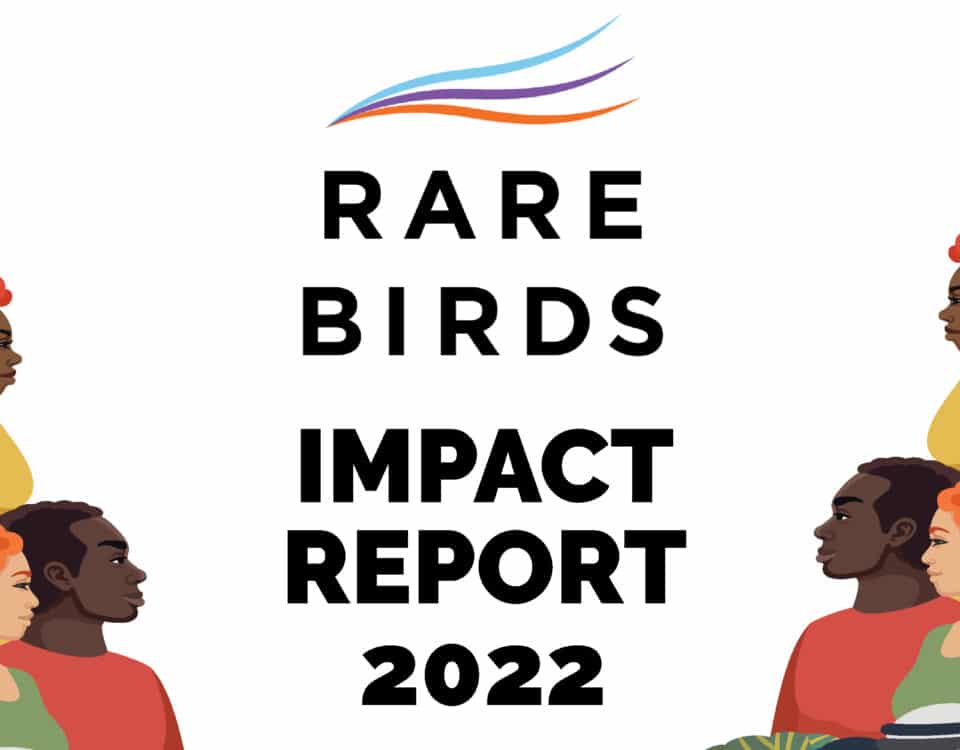Lisa Skaife (yes sister of five-time champion of the V8 Supercar Championship Series Mark Skaife) has created an innovative product that is keeping kids safe on our roads. She and her Mentor Simon Spencer, Senior Principal Data and AI Strategy at Suncorp, share their story.
Tell us a little bit about your business and how it came about?
Mydriveschool is a simulation game to teach kids how to drive online. It’s a combination of gaming, simulation and artificial intelligence delivered on PC with a portable steering wheel and pedal set. So it’s fun, very safe obviously, the kids love it, and it works! In a blind randomised test out at a training facility we had two groups and one of them did mydriveschool first and the other half got straight in the car and did a government funded 20 minute in-car lesson. The instructors didn’t know who had done what when and had to rate all of the kids. Our kids came out 48% more competent and 17% less anxious. So that was a very good day! It was quite a stressful day for me, my anxiety levels were pretty high and we did that just before we launched.
I designed the program and came up with the idea nearly 10 years ago, but it was very difficult trying to get government assistance or any funding. There have been several iterations of the program over that time, because I was never going to bring out anything I wasn’t 100% happy with basically. We launched the first program at the 2019 Australian Grand Prix and went on to win the Australasian Serious Games Congress with the highest score in the history of the event in the same year. I knew it was good, but I didn’t realise it was THAT good! It was great to hear all the gurus say how good it was, because I’m technically useless. I went through a few different gaming developers, and the one I found who I’ve been working with for the past six years is just amazing. He’s a leader in E-Sports, blockchain, simulation and gaming and he speaks in plain English rather than techy talk, which might as well be Japanese as far as I’m concerned! So that’s a big plus. He’s the tech lead but he is also very passionate about and understands where I’m coming from. So I can tell him what I want, what I want to see and what learning outcomes I need. He goes and does ‘tech stuff’ and brings it back to show me and I say yes or no and we go from there. It’s a great relationship and now we’re looking to build new programs about texting and driving, drug and alcohol impairment, country and rural driving, fatigue management, basically the fatal five. We want to stop kids from killing themselves on the road.
Describe the situation that your business was in, including any impacts that COVID-19 has had, when you heard the news that you had been selected as a recipient of a Rare Birds mentoring program through the Amex Ideas Exchange scholarship?
Because our program is delivered in schools, when Covid hit we were cancelled by every single one. We started out with 20 schools, including Haileybury College which is one of the largest schools in the southern hemisphere. They piloted the program in 2019 with 85 kids and then in 2020 came back and booked in for 300, saying it was the most popular elective they have ever done. But then they had to cancel. And then even this year, a lot of our early adopters that were private schools have had to cancel because of budget constraints. So unfortunately a lot of our B2B customer base had to cancel and we had to – I hate this word! – but we had to pivot and now we are offering B2C directly online. And we are also doing a lot of work in the NDIS space because the program can be used as an assistive technology for specialised driver training for anyone on the NDIS which is 480,000 people.
So are you getting government support for that?
No, we are getting absolutely zero government support. I’m currently writing a lot of very long political emails to various people! Last year in Covid there was actually a parliamentary inquiry into the rise of the Victorian road toll and we – along with about 160 others – put in a submission and we were invited to go in and present to the committee. The recommendations came out in March this year and in their 268 page report they made 36 recommendations and number 24 was for the piloting of simulation training for learner drivers. We were cited several times in the report and I was told last week that they were not going to go ahead with any piloting. So that’s why I’ve got very political and why I need a lot of PR now to make some noise about the issue.
What were you hoping would happen as a result of having a mentor?
I online-stalked him first! As an entrepreneur and especially working from home, my tech department is a completely different company, so everything is very individual and I just was so desperate to one: have somebody that I could have a brain dump to and get some feedback from a completely different perspective. Because you’re so engrossed in it you can’t see the wood for the trees. Sometimes you get too engrossed in the wrong stuff and your priorities aren’t taking you in the right direction. So it was great to get someone who can see things in a much clearer way and has a good business mind that can offer alternatives and different suggestions that I would never have thought of.
So Simon, what were your first thoughts after meeting Lisa? Did you feel like you had something that you could offer her?
Yes it was a whole combination of things. Anyone who knows motorsport knows the Skaife name and I have two brothers who are both avid motorsports people and grew up surrounded by it so I was very interested in meeting her regardless! But I was just so impressed with Lisa, I actually had a moment or two of self doubt thinking ‘How do I add value for this person because they are switched on, they have a great product, they have great industry connections.’ So for a moment I was wondering how I could help her. But it is in the conversation that you figure out what the gaps are and where your value lies as a mentor. Lisa doesn’t need help with her business concept, she knows her concept and it’s very solid. But being a mentor is a lot about being able to listen, to be there to hear the war stories. Being an entrepreneur is often an isolating experience. You’re the one with the vision and the dream who is knocking on a lot of doors and having a lot of setbacks and so having a mentor, somebody in your corner who you can just talk to, is a really important role. With Lisa as the conversations have unfolded I have come to realise more and more where I can add value to what she is trying to do.
Mentoring is something that has become very important to me. When I reflect on my own career of quite considerable time now, the most satisfying things and what I am most proud of, are not the systems and technologies, or even the companies I’ve created, but the people that I had some small influence on. When I see them and what they have gone on to do, that’s the thing I get the most satisfaction from.
So Lisa, what has been the short term impact on your business since commencing your mentoring program?
As I said he is just able to look at things from a completely different level from me and has made suggestions of directions to take and different industries that I previously would never have thought of and not been able to do. We’ve got a plan going forward to do some great things.
If you have employees or a team, how has it impacted your staff?
We are looking to expand into new markets but are just waiting on some funding outcomes from the Road Safety Innovation Fund and the Boosting Female Founders. If that comes through we will be building a team very quickly.
Taking what you have learned so far on this mentoring journey, what are you planning to achieve in the next 12 months?
I’ll be looking to put on 6-8 people, and sorting out our distribution channels in other areas. We also started a charity this year called Road Safety Matters. It will deliver road safety solutions to digital natives in rural and remote areas, which account for 64% of all fatalities. We’re now looking at how we can partner up with communities, especially in remote areas. I’ve been speaking with some mining companies in WA and they are funding a heap of Indigenous kids in remote areas in WA. So we will need a few people on the ground to manage that program.
What advice would you give to a potential entrepreneur or mentee thinking about applying for a mentoring program?
Lisa: I’d say absolutely. I had no idea what to do with a mentor. That’s why I stalked him online before I even spoke to him. But it has been a really great experience and as an entrepreneur it’s one that you really do need. Because when it’s your business and your idea, nobody questions you. But you do need to be questioned and you do need to be pushed to look at things from different angles. When you’re so bogged down in it, that is unbelievably difficult to do. Whereas someone else can see things with such clarity and gives you a much better perspective. It also keeps you grounded. Simon has been so measured and considered with his advice on things, whereas I can just run off on a tangent – and it may be the wrong tangent too!
Simon: You learn as much as you give, being a mentor. The right mentors are open to listening to other people’s perspectives and you become enriched by it. I certainly have over the years with Rare Birds and other experiences mentoring and working with people. You learn so much from it and the experiences Lisa’s had working with the government, building a product, knocking on a lot of doors. It’s great to listen to her story and see ways and opportunities to assist, doors I may be able to open, introductions I can make or ways she can craft her product to generate new revenues and alternative channels. The great thing about Lisa is she’s open to all of those, but she also has clarity as to what her dream is. So she’s focussed and doesn’t lose sight of what she is trying to do and that is really great to see.
Across the board, my experience with Rare Birds is that it’s really humbling to see the strength of the talent that is in that network. All of the people I’ve dealt with over the years are just so talented with so much potential and with the time and the right ingredients and opportunities they prosper and flourish. It’s not a matter of if, it’s a matter of when and so it’s a really optimistic and encouraging experience where you see high quality people who are working and collaborating really openly and you know that they will succeed. It’s just a case of what that looks like.
Did you feel nervous or intimidated putting your hand up and asking for help?
No not at all. I’m the first person to acknowledge my weaknesses and just go ok I need help with this, this and this.
Simon: That’s actually a strength. If you can know yourself and really nail that well, then that’s a foundation strength that will help you do well in business.
Lisa: Well I’m kept very grounded by my sons who look at me struggling to operate my phone and ask ‘How’s the tech entrepreneur going?’ haha!
